| | | | | | | Presented By Babbel | | | | Axios World | | By Dave Lawler ·Jan 14, 2021 | | Welcome back to Axios World. - We're starting tonight with Uganda's election and the state of democracy in Africa (1,538 words, 6 minutes).
- Heads up: We'll be off on Monday for Martin Luther King Jr. Day. See you on Thursday.
- Please keep spreading the word about this newsletter, and sign up here if you haven't yet.
| | | | | | 1 big thing: The ballad of Bobi Wine | 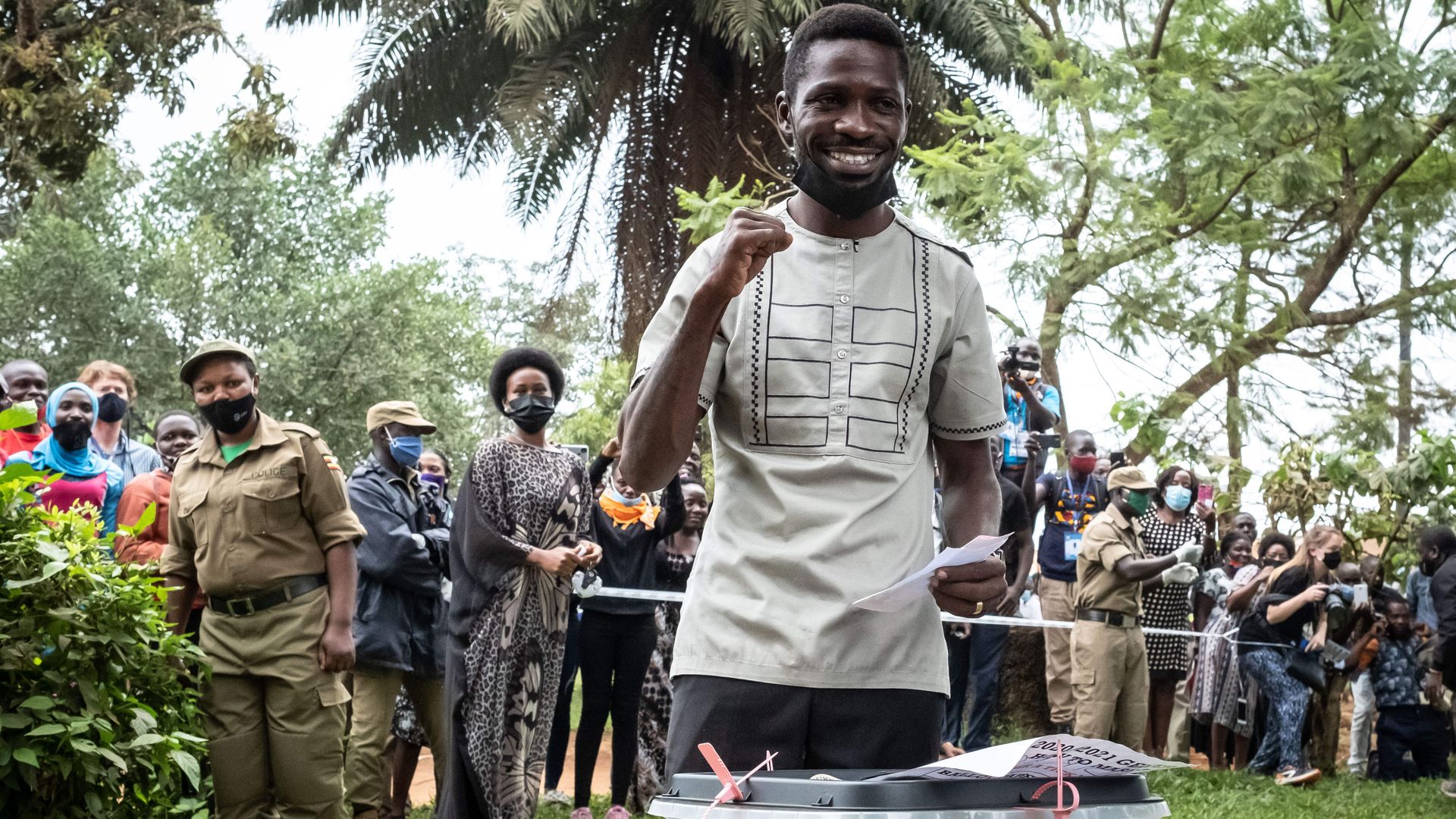 | | | Bobi Wine casts his ballot. Photo: Yasuyoshi Chiba/AFP via Getty | | | | Ugandans faced a stark choice at the ballot box today between strongman Yoweri Museveni and singer-turned-opposition icon Bobi Wine, who was just 3 years old when Museveni took power 35 years ago. Why it matters: Wine has tapped into the discontent and aspirations of young people, particularly in cities like Kampala. Two-thirds of Ugandans have known no leader but Museveni, and many are struggling to find jobs. When Wine's campaign caravan rolls into a neighborhood, massive crowds rise up to meet it. - Museveni has campaigned on stability, security and his record of delivering economic growth.
- He's strongest in rural areas. One farmer told the Economist he only ever heard Wine's name when young people returned to the village for Christmas.
It would be difficult to predict the results were this a free and fair election. It won't be. - The EU and U.S. both canceled plans to dispatch observers due to obstruction from the government (the African Union did send observers), and an internet blackout was imposed on the eve of the election. Scattered reports have nonetheless emerged of irregularities at polling stations.
- Not only was Wine prevented from mobilizing his supporters on social media today, but he also reported that his phone was blocked from making calls. Some supporters who gathered near his home on election day were arrested.
- Authorities thwarted Wine's efforts to campaign at every turn, citing COVID-19 restrictions, which seemed to apply almost exclusively to the opposition and were enforced with tear gas, arrests, beatings and even live bullets.
Zoom in: In a press conference with international media last week, Wine described a daily process in which he sets out with a large campaign team and "by the end of the day, some are in prison, some are in hospital, and some are dead." - As if to prove his point, a policeman began shouting at Wine and rapping on the window of his car, which had been pulled off the side of the road.
- "You are embarrassing our country," Wine scolded the officer as he was pulled from the car and briefly detained. When Wine resumed the call, he said international attention had kept him alive thus far, but "I expect a live bullet, targeted at me, at any time."
What to watch: Since independence in 1962, Uganda has never seen a peaceful transfer of power. - Wine claimed ahead of the election that the results would be compromised because Museveni controls the electoral commission.
- After polls closed, he told his supporters that "the picture still looks good" if the commissioners "declare the will of the people."
- He has not said whether he will call his supporters into the streets if Museveni is declared the winner, but Museveni has spoken in threatening terms about the force with which any potential "uprising" will be greeted.
The state of play: Voters gathered at polling places in Kampala tonight, cheering as ballots for Wine were read out, per Reuters. The full results could be announced on Saturday. Flashback: Museveni, 76, helped topple two dictators. Since taking power, he has changed the constitution twice to remain in office. - In an interview with NPR ahead of the election, Museveni described Ugandans as lazy and in need of a strong hand.
- "It's very risky," Museveni said, referring to the idea of stepping aside. "The people don't know whether to go north or south, and you say, 'You just go.'"
- Some Ugandans clearly disagree. As of November, just 36% had confidence in their government, per a Gallup poll, and only 32% had confidence in the honesty of their elections.
|     | | | | | | 2. The view from Washington |  | | | Museveni at the White House in 2014 for a summit of African leaders. Photo: Mark Wilson/Getty Images | | | | Wine contended in Foreign Affairs this week that Museveni had been able to hold onto power for three decades in part because the U.S. and Europe have treated him as a "military ally and development darling." - Johnnie Carson, former assistant secretary of state for Africa (2009–2013) and ambassador to Uganda (1991–1994), says the U.S. has indeed worked closely with Uganda to fight al-Shabaab in Somalia and the Lord's Resistance Army in central Africa.
- The U.S. has also seen Museveni as a "reliable development partner," Carson says, though he notes that Museveni has also faced growing criticism from Washington for his crackdowns on the opposition and civil society.
- One Western diplomat in Kampala, speaking to the Economist admitted to a sense of trepidation: "What happens if Museveni falls?"
What's next: The results of the election are likely to be contested, perhaps violently. That process could play out just as President-elect Biden is entering office. - That would pose an early test for Biden's promise to fight for democracy around the world.
|     | | | | | | 3. Data du jour: Democracy in Africa |  Data: Freedom House; Map: Andrew Witherspoon/Axios Wine has become a symbol beyond Uganda of a younger generation standing up to a political old guard that is refusing to budge. The big picture: "There has been slippage in Democratic progress across Africa," Carson says. "In many places, it has started to stall, and in a number of places, we have seen significant backsliding." - That's backed up by the annual democracy index from Economist Intelligence Unit, which finds that democracy has improved in several African countries over the last decade (Ghana, Madagascar), but receded in just as many (Benin, Mali).
- But Carson, now a senior adviser at the U.S. Institute of Peace, also cites an Afrobarometer poll that finds that 68% of sub-Saharan Africans would prefer to live under democracy. That's compared to 13% who prefer a non-democratic system and 15% who say it doesn't matter.
What's next: There are still elections to come in 12 African countries this year, including one in Ethiopia that could prove crucial for the future of the country. |     | | | | | | A message from Babbel | | Start speaking a new language in three weeks | | | 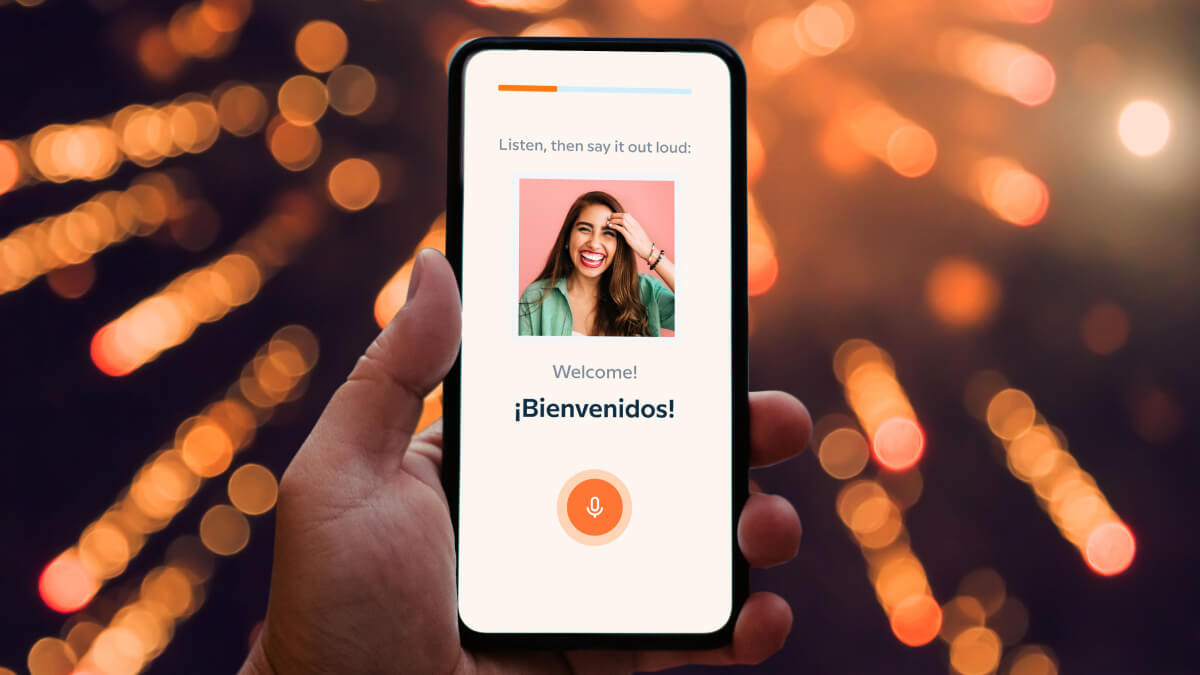 | | | | In 2021, let language take you places with Babbel. The background: This language learning app gives you bite-sized, manageable lessons in a variety of languages. It'll have you speaking the basics in three weeks. Sign up today and get 60% off. | | | | | | 4. State of the outbreak |  | | | Illustration: Annelise Capossela/Axios | | | | 1. President Joko Widodo, 59, was the first Indonesian to receive a coronavirus vaccine on Wednesday. His 77-year-old vice president will have to wait — because he's too old. - What's happening: Indonesia is breaking from most other countries by vaccinating working-age people first, believing that they're more likely to spread the disease.
- That approach could make sense in developing countries where the economy is heavily reliant on work that can't be done from home.
2. But the vaccine Indonesia is most relying on, from China's Sinovac, appears to be far less effective than initially believed. - Updated data from Brazil suggests it's just 50.4% effective at preventing infection (it is more effective at preventing severe cases).
- That's a big setback for several developing countries, including Brazil. The most effective vaccines currently available are destined almost entirely for the rich world.
3. In better news, a large study in the U.K. has found that people with prior COVID-19 infections are 94% less likely to get another symptomatic case. - That's on par with the efficacy of the Pfizer and Moderna vaccines.
4. The African Union announced today that it had secured 270 million doses from Pfizer, AstraZeneca and Johnson & Johnson. - Most African countries are otherwise entirely reliant on doses from the global COVAX initiative.
5. A WHO team arrived in Wuhan today to investigate the origins of the virus, work that has long been impeded by the Chinese government. - The whole team will have to quarantine for two weeks, and two of the 13 scientists were denied entry because they tested positive for IgM antibodies.
|     | | | | | | 5. Philippines: No job for a woman | 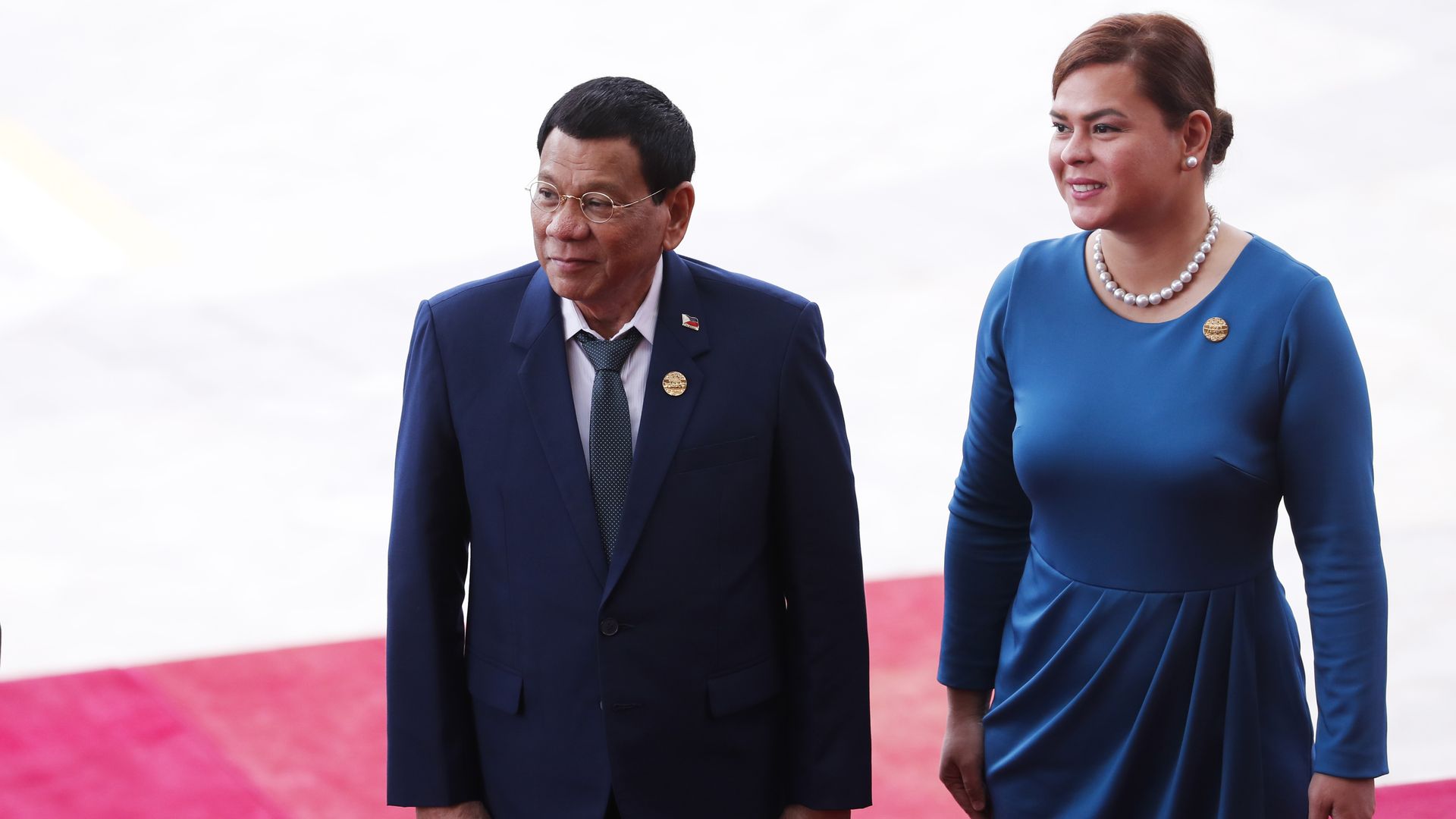 | | | Rodrigo and Sara Duterte. Photo: AFP via Getty | | | | Philippines' President Rodrigo Duterte is one of the most popular presidents in the world, in spite — or perhaps in part because of — his history of prejudiced remarks about women, gay people and minority groups. Driving the news: Polls suggest his daughter and successor as mayor of Davao City, Sara Duterte, is the electorate's top choice to succeed him as president in 2022. But he said today that Sara would not be running. - The presidency, he said, is "not meant for women," as they have a different "emotional setup" than men.
- Duterte, who frequently complains about the miseries of his job, added that his daughter would "go through what I went through."
What to watch: Duterte is not eligible to seek re-election at the end of his six-year term, though an attempt by his allies to amend the constitution raised speculation he might try to stick around. - "Even if you serve it to me on a silver platter or give me 10 more years for free, I am done," he said today.
Meanwhile, Duterte is facing a Senate investigation into reports that doses of an unapproved Chinese vaccine were smuggled into the Philippines and given to upward of 100,000 Chinese nationals as well as to some of the soldiers assigned to guard Duterte. - Duterte has told the soldiers not to cooperate with the investigation, and his office described the vaccines as a "gift" from China.
- Worth noting: Many of the Chinese nationals in question work in offshore gambling. Several illegal medical clinics catering to Chinese nationals working in offshore gambling were discovered in the Philippines last year.
Go deeper |     | | | | | | 6. A tale of two Jacks | 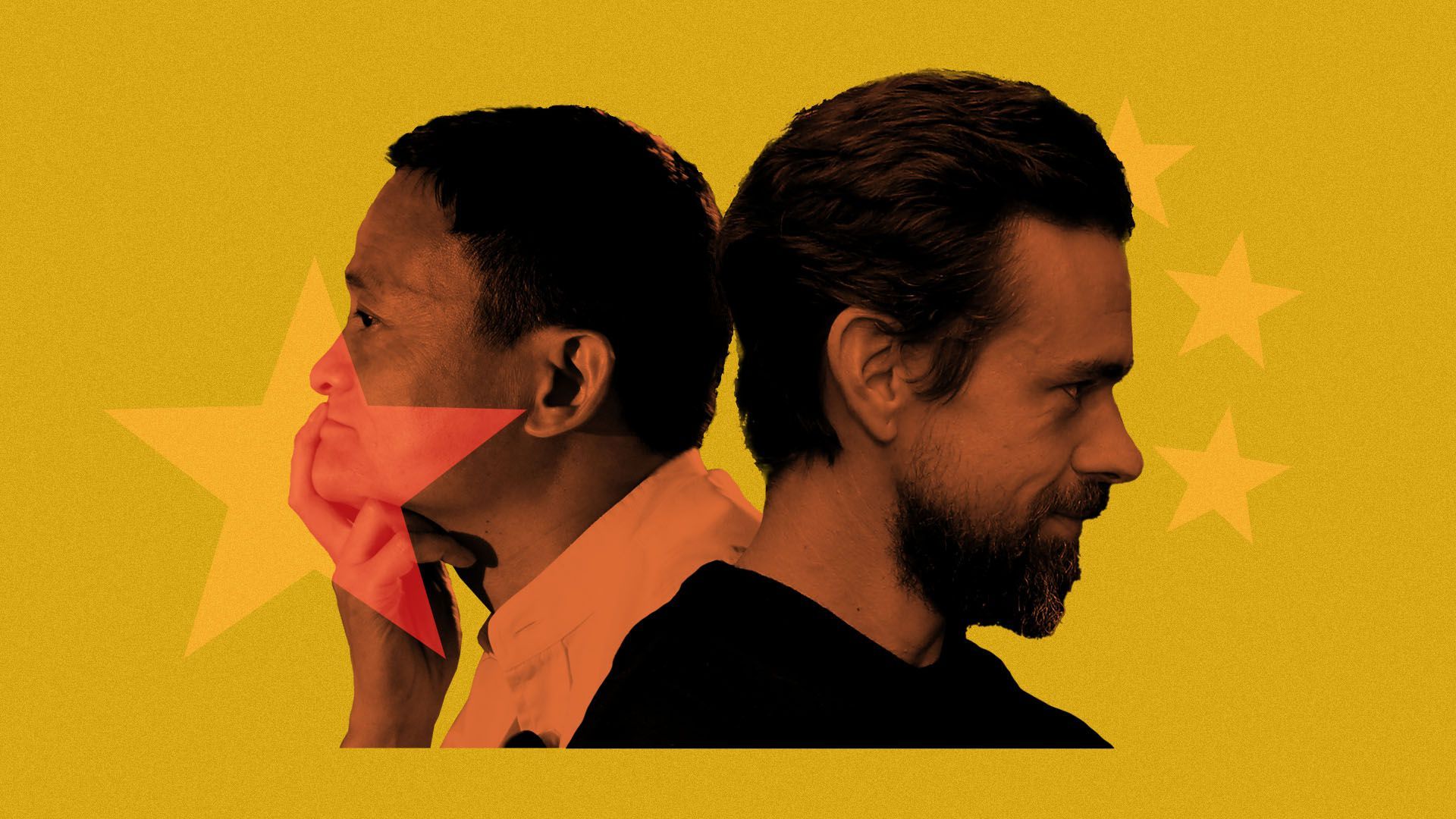 | | | Photo illustration: Sarah Grillo/Axios. Photos: Costfoto (Barcroft Media), Phillip Faraone/Getty Images | | | | I've been thinking a lot this week about this brilliant observation from my colleague Bethany Allen-Ebrahimian: - In the U.S., a tech billionaire — Twitter CEO Jack Dorsey — unilaterally shut off the president's microphone this week by banning his account.
- In China, a tech billionaire — Alibaba founder Jack Ma — criticized government regulators and soon retreated into silence himself, facing an antitrust investigation and the cancellation of history's biggest IPO.
- The two almost perfectly inverse situations reveal quite a bit about the way both countries have handled tech giants and digital information.
Go deeper |     | | | | | | 7. Stories we're watching |  | | | A flower seller in Hanoi. Photo: Manan Vatsyayana/AFP via Getty Images | | | - Biden picks Samantha Power for USAID
- Biden intel pick Haines to have Senate hearing Friday
- Why Biden picked Burns for CIA
- The coronavirus variants: What you need to know
- Israel wants Biden to take it easy on Saudis
- Fate of U.S. consulate in Jerusalem uncertain
- Space wine returns to Earth
Quoted: "I believe that ethically everyone should take the vaccine. It is not an option, it is an ethical choice because you are gambling with your health, with your life, but you are also gambling with the lives of others." — Pope Francis, who got his first shot |     | | | | | | A message from Babbel | | Start the new year with a new language | | | 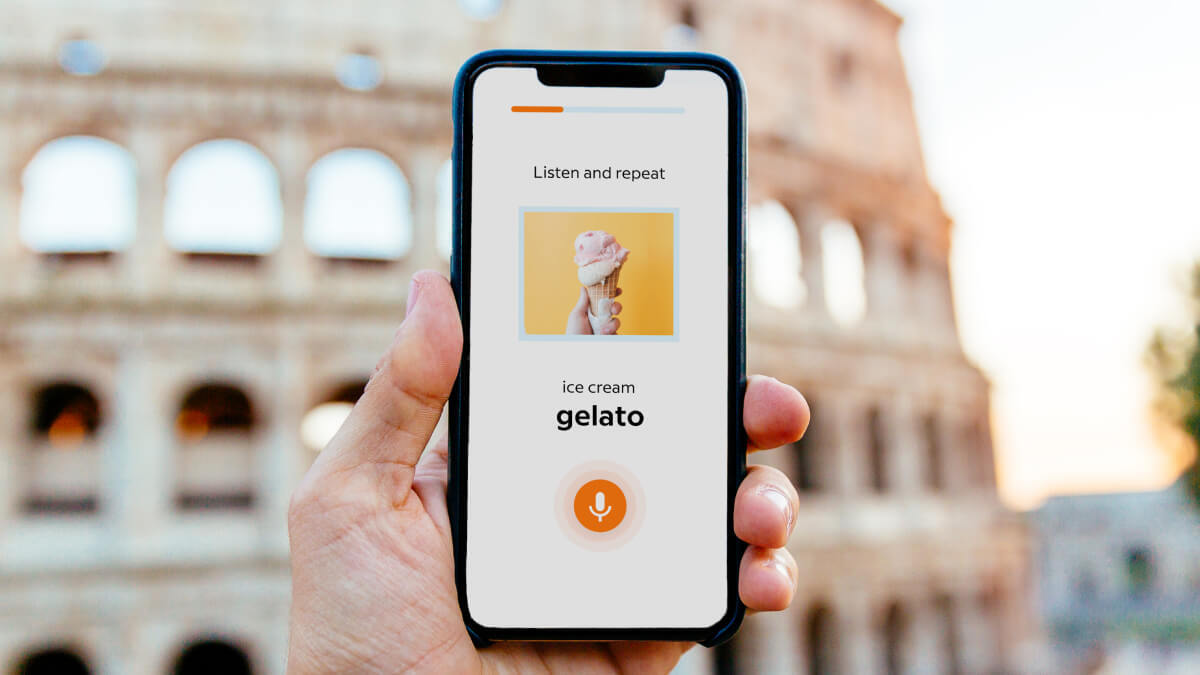 | | | | In 2021, let language take you places with Babbel. The background: This language learning app gives you bite-sized, manageable lessons in a variety of languages. It'll have you speaking the basics in three weeks. Sign up today and get 60% off. | | | | | | Axios thanks our partners for supporting our newsletters.
Sponsorship has no influence on editorial content. Axios, 3100 Clarendon Blvd, Suite 1300, Arlington VA 22201 | | | You received this email because you signed up for newsletters from Axios.
Change your preferences or unsubscribe here. | | | Was this email forwarded to you?
Sign up now to get Axios in your inbox. | | | | Follow Axios on social media:    | | | | | |










No comments:
Post a Comment